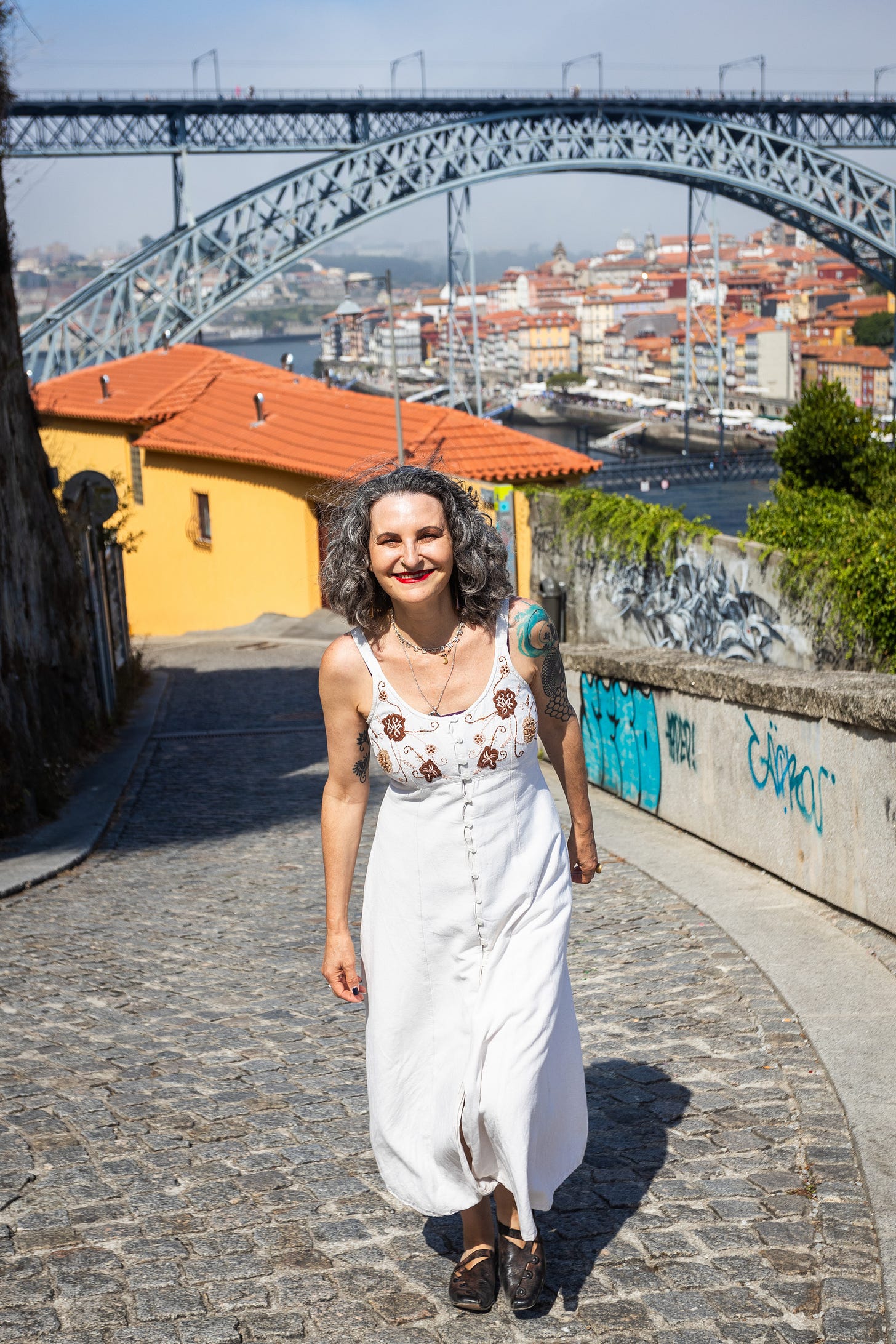Portugal Isn’t Perfect—But Here’s Why I Love It
One expat shares the real costs, challenges, and joys of building a new life in Portugal.
Hi, I’m Kimberly Anne. I’m an expat living in Portugal, and I’ve been here since 2022. When I first arrived, I came alone, barely knew the language, and had no idea what to expect. Since then, I’ve discovered not only the challenges of living here but also the joys—and I wouldn’t trade it for anything.
Below, I’m answering some of the most common questions people ask me about life as an expat in Portugal.
(Watch the full video Q&A embedded above for the complete conversation.)
Do the Portuguese Welcome Expats?
I’ve been asked if locals respond negatively to expats moving into Portugal. While I know that can happen, I’ve personally never experienced it. Instead, I’ve found genuine kindness and interest.
Once, I asked a man if he was upset that so many expats were moving in. He said no—in fact, he was happy. He told me Porto used to feel less safe 20 years ago, but now, thanks to expats, it’s safer to walk around at night.
And it’s not just the Portuguese. The expat community here is big but also really supportive. People know each other, look out for each other, and help each other out.
Is Portugal a Good Place to Retire?
Yes, absolutely. I’m not technically retired anymore—I had retired when I first arrived, but later went back to work. But I have many friends here who are retirees, and they love it.
Retirement here isn’t about slowing down. One of my friends is nearly 70, and she’s paddleboarding and hiking all the time. Pickleball is huge here, too, especially among retirees. Life feels like it’s just beginning.
How Much Does it Cost to Live in Portugal?
When I first moved here, I lived comfortably on about $2,000 a month. Today, that’s much harder. Housing prices, in particular, have gone up significantly. For example, a friend of mine rented a tiny two-bedroom in Porto for about $500 a month. That same place is now listed at €800.
Still, some costs remain much lower than in the U.S. I pay under €1,000 for my three-bedroom apartment, which is a 25-minute walk to downtown Porto. Doggy daycare is only €190 a month (compared to $65 a day in the U.S.). Gyms are very affordable. Doctor visits are inexpensive. Overall, even with rising costs, I live for less than half of what I spent in the U.S.
Right now, my budget is about $3,500 a month. Some people live on less, others on more—it all depends on your lifestyle.
What About Healthcare?
Healthcare is one of the biggest advantages of living here. Portugal has universal healthcare, and once you sign up with your residency card, you can access public hospitals, often for free or very little.
My first experience with the public system wasn’t perfect—I broke two fingers, waited hours, and didn’t feel cared for. But I also signed up for private healthcare, and that was incredible. I had two surgeries, a private hospital room nicer than some hotels, all the medicine included, and the total bill was €200.
Medications are also far cheaper with public healthcare coverage. One of mine dropped from nearly €300 to under €60. That alone makes the system worth it.
Which Towns and Regions are Best?
I’ve lived in Porto for three years, so that’s the place I know best. It’s green, affordable (at least compared to Lisbon), and has a huge expat community. But it’s rainy—sometimes up to 10 months a year.
If you want heat, head south to the Algarve. If you want cooler weather, look north. Lisbon is beautiful, but for me, it’s too expensive, too crowded, and too hot in summer.
Some of my personal favorites:
Setúbal, a charming town south of Lisbon that immediately felt like home.
Ericeira, a beach town I prefer over others nearby.
Coimbra, a hilly college town full of character.
Viana do Castelo, near the Spanish border, green and stunning.
Aveiró and Ovar, coastal towns between Porto and Lisbon, full of charm.
Wherever you choose depends on what you value—climate, affordability, culture, or proximity to airports.
What are the Biggest Challenges?
Portugal isn’t perfect. Apartments can be old and quirky—no A/C, no heating, sometimes plumbing issues. Bureaucracy involves a mountain of paperwork. Grocery shopping was a huge challenge when I first arrived, because I had no idea where to go.
The weather can also be tough. In Porto, it rains a lot. I had one year where it rained 10 months straight. It took me a while to adapt, but now I’ve learned to escape south for a couple of months in winter.
And yes, language is a challenge. Not everyone speaks English, though many people do. But people will make an effort to understand you, even if you only know a little Portuguese.
Final Thoughts
Life in Portugal is not always easy. But it’s worth it. You learn adaptability, patience, and a slower pace of life. For me, it’s been the best decision of my life. I feel safer here than anywhere else I’ve lived. I’ve built a stronger community than I ever had in California. And I have zero regrets.
Would you consider retiring in Portugal? What’s your biggest question about expat life here? Share in the comments below!
Editor’s Note: At International Living, we share firsthand stories like Kimberly’s every month—insider looks at what life is really like overseas. If you’d like more expat stories, practical guidance, and ideas for your own escape abroad, consider subscribing to the magazine here.



